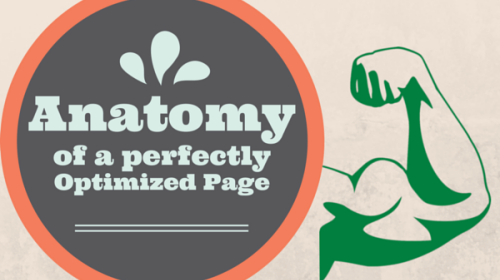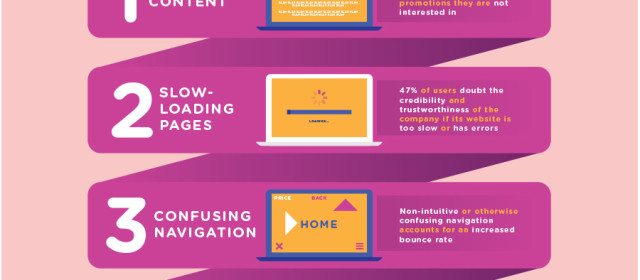Getting your company’s site up and running is the most important phase of digital marketing that you’ll experience thereafter, so getting this phase right is critical! Our Part 1 shows you how to build a strong digital foundation. 77th Floor Online wants to make sure that you are comfortable with the sink-or-swim moments in your journey, so that you can be successful in bringing your site to market. Launch your website, get your audience, and change the game! Choosing a Web Host Ensuring that you have a best-in-class web-hosting partner is a critical piece in the puzzle. Before you are ready to launch your site, you should partner with an industry leading web host to discuss the type of services you’ll require, the amount of traffic you estimate that your site will get, your plans for future growth, and the intricacies of the information you might hope to collect from your visitors. Once your vendor has this information, he or she will be able to determine whether they can host your site on the level that you need and provide you with a detailed quote. Make sure you really assess whether your vendor is able to support the bandwidth you need, as well as providing safety and security to your visitors. Beautiful Design The first thing your customers will notice when they view your site is the intricacies of your web design. Not only do you need a beautiful aesthetic design, but also ensuring that your site has a great user experience and seamless functionality across platforms is critical. Partnering with a vendor that can provide both design and guidance in understanding the vast intricacies of web design. Search Engine Optimization Now that you have a site up and running, it’s time to make sure you’re getting noticed. As you launch, there are a lot of things you can do along to way that will save you time later! Knowing what you’re doing from an SEO perspective pre-launch can ensure that you’re set up for success as you go live. Partnering with a knowledgeable vendor can save you tons of time, money, and frustration in the long run. Vendor partnership and learning is one of the most beneficial things you can do as you get your site up and running. This relationship will ensure that your site launch is a success from the start. 77th Floor employs a team of experts that can be a great resource for you in your journey. Visit...
Read MoreWant to improve organic traffic, drive leads and improve your position in search engine results? There have been significant changes in the recent past with how search engines evaluate the content on your website and decide its rankings.Google has over 200 factors that it takes into consideration for website rankings. Below is a list of on-page elements which contribute towards a perfectly optimized web page. While no single factor below is the make-or-break for getting your page ranking high, in combination, these factors will raise your overall score. SEO friendly URL’s The first 3-5 keywords of a URL are important and should be focused upon. You should always reduce the length of the URL to an abbreviated phrase, containing only 4-5 words if the title is too long to make it perfect. Optimized title tags Keep the number of characters in the title tag not more than 55 as Google only displays around 50-60 characters. And design it so that it includes the target keywords and these keywords are towards the beginning of the tag. Its a definite plus to include the keyword into the H1 and the other heading tags. Dazzle with visuals Be generous with the use of pictures and videos as this increases site time and reduces bounce rate. And there is nothing like visuals to prompt user interaction which will improve rankings. Using ALT attributes to these images will enable them to come up in Google image results. Quality Links Having out-bound links to quality authority webpages that have related information makes it easier for Google to understand what your topic and content is about. A few internal links (to other pages on your site) are also helpful, especially if they tie together similar topics. Internal links also help search engine bots navigate and categorize your site. Word count for content Having around 1500 + words for a webpage content is expected to drive more traffic to your website. However, making it too long would result in readers losing interest and bouncing off your site. So, depending on which industry your website falls into,make sure the content is highly relevant, fresh and at least 500 words. Keywords in the content When we are designing our on-page SEO we like to use one, or at most, two target keywords or phrases per page. This target search phrase and related words can be repeated three to 10 times within body copy. Overdoing it will result in the page getting downgraded as spam. Put up social sharing buttons on your website Including of social media links and / or user discussion or reviews on pages will earn quality in-bound links....
Read MoreYou’ve been hearing from everyone about making your website mobile-ready. But you’ve been procrastinating. Well, your time is almost up! Google has announced that from April 21st on-wards its ranking algorithm will place more weight on how mobile-friendly a website is when users search from a mobile device. “This change will affect mobile searches in all languages worldwide and will have a significant impact in our search results. Consequently, users will find it easier to get relevant, high quality search results that are optimized for their devices.” To check if your website is mobile ready, you can test a few of your pages here For websites that are looking to make the switch, Google has a handy guide to simplify the process Your website is an essential tool for the success of your business and we want to see you succeed. If your website does not use responsive website design, that is, it does not give mobile users the best user experience, then give us a call and get this conversion done. And please reach out to us before the April 21st...
Read More“Provide high-quality content on your pages … This is the single most important thing to do. If your pages contain useful information, their content will attract many visitors and entice webmasters to link to your site.” – Google guidelines Writing for the web is totally different from writing for print. The average attention span for people is now 8 seconds – 1 second less than goldfish. So what rules should a website owner be following when writing content for the website??How can he convert visitors into paying customers? Your website needs to be sharp. After all, your competition is only a click away Tip #1 – Know your subject The “secret” to writing seductive web copy is to write for one person only: your ideal reader. Everyone’s tuned into the same radio station: WII-FM – What’s In It For Me? Don’t write what you like to write. Write what your audience wants to read. Tip #2 – Nail your headlines On average, 80% of people will read just the headline – only 20% will read the rest. Here are a few tips to get you thinking: Numbered Lists 7 ways to drive traffic to your website Make an intriguing promise How to get 100 Facebook likes in 30 minutes Sneak in some creative adjectives Turn into an effortless SEO guru Trigger a response with what,why, how, or when How not to crash your website Tip #3 – Make Content Scan-able Eyestrain, short-attention spans and our desire for instant gratification all dictate the need for web friendly copy. Making your content easy to scan gives your visitors what they want and keeps their attention longer. Some easy ways to format your web copy are Break up text using headings and subheadings Create bullet-ed and numbered lists Format text with bold, italic, underlining, or color Include images, video, infographics Tip #4 – Stay focused Search engines want to provide users with web pages that are most likely to answer their search query. Therefore, the tighter the focus of your page, the more likely it is to answer a specific question. One of the most effective ways to successfully engage your reader, and convert your reader to a sale—is to tell a story that they can relate to, and which offers your products or service as a solution. Always focus on your customer, not your company Tip #5 Correct SEO...
Read MoreEver wondered “why can’t I find my website in Google?” This is a common question many people ask and the simple answer is Google hasn’t indexed your page or website yet. And when your site or parts of it are not getting added to the Google index, it means that nobody will ever find your content in the search results.When new websites are created no one knows about their existence, least of all Google. To get these search engines to find your site you must either submit the website to them or their spiders must crawl their way along links until they find you and eventually add you to their index.The more often your site gets crawled, the sooner your new content can start appearing in the search results, and bringing in traffic and sales. Content is King even over here. But remember:Quality Content! Every time Google crawls your site, it looks for stuff it hasn’t seen before. If it finds something new it will keep coming back more often. If it doesn’t see anything fresh and exciting, it might wait a little longer before visiting you again next time. 77th Floor Online can help you with getting your website found Check out this infographic to show the “crawling process” and the 7 most common reasons why Google might be neglecting you. Courtesy of: Quick Sprout Contact us if you need our help and we can get you going in no...
Read MoreWith over a billion websites out there and even more active internet users, its getting crazy hard to keep your visitors on your website. Is your website doing anything to grab people’s attention and get them to go “Aah I want that” or are they going “Eeks, get us out of here! How does the user experience on your website improve your brand perception? A good user experience on a website can affect how visitors feel about your brand and make a difference in whether they decide to purchase from your site. If a site is unreliable with problems loading or has technical issues, visitors may grow to distrust the site and the brand. If visitors can’t find the product, they’re looking for, they have numerous other options and they will go there. If visitors don’t understand the information on the site, they’ll go where they can get it. This infographic from Crucial best explains what features of a website click and what don’t! Infographic: Website Experience and Brand Protection Crucial ...
Read More





